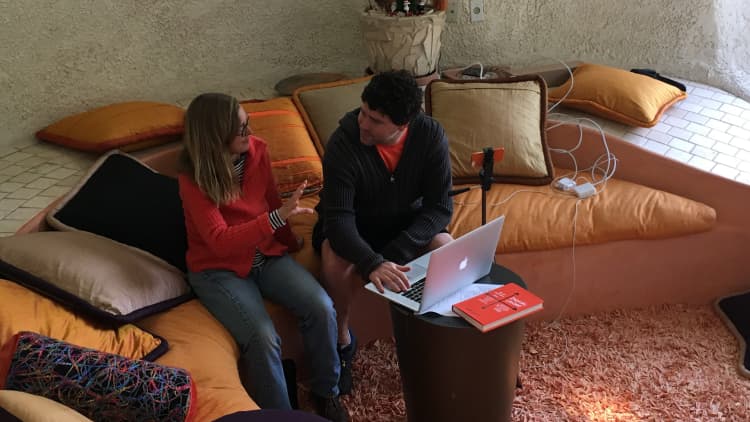The goal of a boss is to be a team's decision-maker, right?
Not exactly, says Kim Scott, former Google executive and sought-after Silicon Valley CEO coach.
Scott knows the ins and outs of well-managed teams. She's helped numerous C-suite clients including executives at Dropbox and Twitter, among others, and has worked closely with Google co-founder and Alphabet CEO Larry Page.
One of the most common mistakes bosses make, Scott says, is trying to make all of a team's decisions.
"Don't fall into the trap of trying to grab all of the decisions yourself," Scott tells CNBC. "You're not helping your team."
According to the leadership expert, having one person make the majority of a team's decisions, both granular and strategic, can hurt the group's performance in the long run. By trying to solve everything, a boss can end up diminishing the team's ability to collaborate, share expertise and make decisions collectively, Scott says.
Plus, it's just not always possible.
"You don't know the facts as well as the people on your team do," Scott says.
Don't fall into the trap of trying to grab all of the decisions yourself.Kim ScottAuthor of "Radical Candor"
An experience Scott had with Page serves as a perfect example.
At a conference for Google employees, the two were watching "Roving Mars," a documentary about the NASA engineers who achieved the incredible feat of exploring the Red Planet.
After the film, one of the operation's lead engineers said that over 4,000 people worked on the Mars rover, and that no one single person could completely understand the whole process, including those who led it.
In other words, exploring Mars was only possible through an intense level of collaboration, a fact that struck a chord with Page.
Instead of being discouraged by the fact that it took 4,000 people to accomplish something, Page was inspired. The CEO turned to Scott and said, "Wow, that really makes you feel like you can accomplish something, doesn't it?"
In her book "Radical Candor," Scott recommends managers create a culture where any employee can feel open to weigh in on a decision if he or she feels strongly. She's also developed an app called Candor that helps bosses assess their strengths and weaknesses, including if they are being too aggressive in their approach.
In some cases, Scott says, bosses should outsource a decision to a direct-report or other employee who will then be tasked as the "decision-maker." The designated employee would be in charge of gathering all of the information from others involved, holding a conversation about it and then presenting the boss with the decision once it's made.
This encourages a more collaborative approach to making decisions, without taking a lot of a leader's time.
At the very least, simply making a point to listen to your employees goes a long way, the CEO coach says.
"Telling people what to do," she emphasizes, "doesn't work."
Check out Scott's advice on when a boss knows it's time to fire an employee






